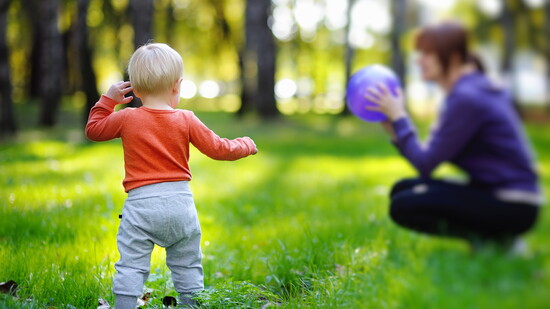The baby finally naps. Your inbox is on fire. And in the back of your mind, that familiar question returns: Should we hire a nanny or look into day care?
If you're a North Shore parent with young kids, you're not short on options—but that doesn’t make the choice easier. Each path has its perks. Each has its drawbacks. And each one shapes your daily life in very different ways.
Jayme Richards, founder of The Nanny Collaborative, has spent more than three decades helping families find trusted in-home care. Whether it’s first-time parents or those managing toddlers and tweens, she says most have little room for sick days or last-minute errands.
"Convenience is a big factor," she says. "Having someone at your house, with your child, handling things—it's hard to overstate how much that helps."
Richards’ clients often include both parents who are full-time, working professionals with a calendar that barely has space to breathe. These are families who can’t afford to scramble when the baby gets pinkeye, or a meeting runs late, or the dog eats a sock.
A nanny steps in where needed. They pick up groceries, fold laundry, prep dinner, and manage the toy explosion that seems to happen five minutes after cleanup. That way, when parents walk in the door, they can be present—not playing catch-up.
But it's not just about to-do lists. A good nanny becomes an extension of the family. They know your kid’s nap quirks, what snacks they love and when a meltdown is brewing.
"Nannies aren’t babysitters," Richards explains. "They’re professionals. They know how to meet a child where they are—developmentally, emotionally, even on a cranky Monday."
Still, even the most magical nanny needs a break. Enter the modern day care: structured, social, and yes, increasingly flexible.
Maggie Pisarczyk, owner of Celebree School of Northbrook, knows that juggle well. She ran a household as a nanny for five years before opening her own early childhood education center.
“We grow people big and small," she says. "That means emotionally, socially, developmentally—and yes, physically."
Celebree serves kids from six weeks to 12 years and offers everything from infant care to after-school programs to summer camp. Pisarczyk developed the school with working families in mind. That means drop-in care when needed, part-time enrollment, and coverage before and after school options. There’s even a team of trained floaters who step in when someone on staff calls out.
The vibe? Structured but warm. Teachers serve family-style breakfasts. Toddlers learn to set the table and pour their own juice. There’s yoga, science, music and even a garden snake made of rocks painted by the kids. Every class follows a curriculum—even the infants.
Pisarczyk remembers what it’s like to be on the parent side of the equation.
"I try to meet people where they are,” she says, “because I remember how hard it was to make it all work."
And if your nanny calls out sick or takes a vacation, Celebree can often fill the gap. Their drop-in program means families don’t have to scramble when plans fall through.
"Families are surprised by how flexible we are," she adds.
Both care models prioritize consistency, trust, safety and emotional well-being. Richards vets every nanny she places with extensive background checks, social media reviews and reference calls. CPR and first aid are the minimum. She also takes the time to understand parenting style, comfort level with independence and what a typical day looks like at home. Pisarczyk has a similarly rigorous interview, selection and screening process for her staff.
"Anyone can do dishes," Richards says. "But it takes a certain kind of person to love your children—and love their job."
She encourages families to try a nanny for a day, or at least a few hours, to see what the chemistry is like when the parents leave the house. If something feels off, a reputable agency will help find a replacement.
Pisarczyk takes a similar onboarding approach, easing new children into the school with short visits or playdates. "We want kids to feel safe and seen,” she says. “And parents want that too."
So how do you choose?
If your child thrives in a one-on-one setting and your family wants help managing the home, a nanny might make more sense. If your child is ready to socialize or eager for structure and building more independence, a day care like Celebree may be the better fit.
Sometimes, it isn’t either-or. Some families use a nanny during infancy and transition to school-based care around age two or three. Others keep both options open, using day care part-time and a nanny on backup, depending on work, travel, or sibling needs.
There’s no one-size-fits all solution. Just people—smart, thoughtful, skilled people—working to support you and your family.
Just don’t wait until you're running on fumes to figure it out. Sleep is hard enough to come by already.
"Nannies aren’t babysitters," Richards explains. "They know how to meet a child where they are."
"We grow people big and small," Pisarczyk says. "That means emotionally, socially, developmentally—and yes, physically."
